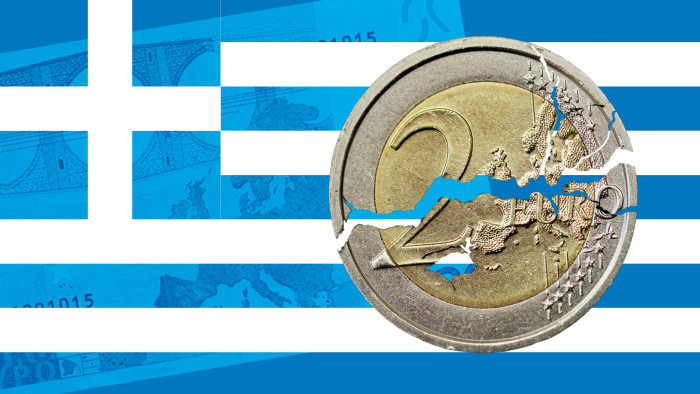Greece struggles to accommodate lenders as cash dwindles
Simply sign up to the EU economy myFT Digest -- delivered directly to your inbox.
Athens haggled with its lenders through the weekend to try to narrow differences over economic reforms, but remaining gaps suggested that there would be no immediate relief for Greece’s cash-strapped government.
Creditors have demanded that the country must implement reforms before they will unlock about €7.2bn in undisbursed bailout funds.
Both sides held lengthy talks over the weekend, including 10 consecutive hours on Saturday, after the Greek government sent a full list of reforms to bailout monitors late last week. Athens had set Monday as a deadline to finalise the list.
Officials who have seen the offering said that while it contained concessions, it lacked detail in some of the areas that have caused concerns during previous talks.
Without fresh funding, Athens risks running out of cash before meeting a €450m loan payment due to the International Monetary Fund next week. The credit rating agency Fitch downgraded Greece late on Friday to a “substantial credit risk”, citing “uncertain prospects of timely disbursement from official institutions”.
Greek officials said Alexis Tsipras, the prime minister, had given ground on two key demands made by creditors: increasing value added taxes for Greek islands, a measure previously repudiated by Yanis Varoufakis, the Greek finance minister, and retaining an unpopular property tax that Mr Tsipras had vowed to abolish.
The property tax concession appeared to be the centrepiece of the new plan. It would raise an estimated €2.5bn of a predicted €3bn in new revenues, which Greek authorities estimated would put their primary budget surplus — the amount of revenue taken in, minus spending, not counting interest on debt — at almost €3.5bn for 2015.
But the list failed to include reforms to labour laws and Greece’s pension system — two areas that monitors have insisted are essential to finalising the bailout programme. They remained “red lines”, said Greek officials.
“There’s no prospect of taking any recessionary measures, whether it’s cutting wages and pensions or liberalising regulation on mass dismissals,” said Mr Tsipras in an interview published in RealNews, a Sunday newspaper.
Such resistance continued to meet scepticism in eurozone creditor countries, where frustration remains high that Athens is prioritising new spending plans paid for by bailout funds over economic reforms.
“It’s financed by ‘making the system work better’,” said one official from a creditor country who has seen the list. “This relies on huge optimism [and fiscal gains that might occur] some time in the future, but long after the costs start kicking in.”
In addition, officials from the institutions responsible for monitoring Greece’s bailout — the European Commission, European Central Bank and IMF — said the list remained too vague, with optimistic economic assumptions and a lack of detail that has plagued past Greek proposals.
In depth

The Syriza government faces resistance to its plans to tackle the country’s massive debt burden
Read more
Negotiators have been trying to prod Athens to firm up its offering before formally submitting it to the eurogroup of 19 eurozone finance ministers. “The aim on our side is to turn that into something sufficiently detailed and credible,” said an official from one of Greece’s bailout monitors. “It’s still very much lacking in detail.”
Greek officials expressed hope that a eurogroup meeting could be held this week to reach agreement on a “sub-tranche” — a partial disbursement of the €7.2bn that could tide Athens over until a full deal is reached.
But officials involved in the talks said such a meeting remained highly unlikely, and that it would more probably be held next week — and only if bailout monitors were first able to get the new list into shape.
Officials on both sides said the weekend talks had occurred in a more positive atmosphere than the occasionally contentious rounds two weeks ago, but that progress remained slow.
“We will look at the list and discuss it and evaluate it if the institutions tell us that they think it is so complete that on this basis we can reach a staff-level agreement rapidly,” said an official from a eurozone creditor country, adding that such a discussion could occur after this weekend’s Easter holiday — but only “if they [the Greek government] accelerate [the talks]”.
Comments